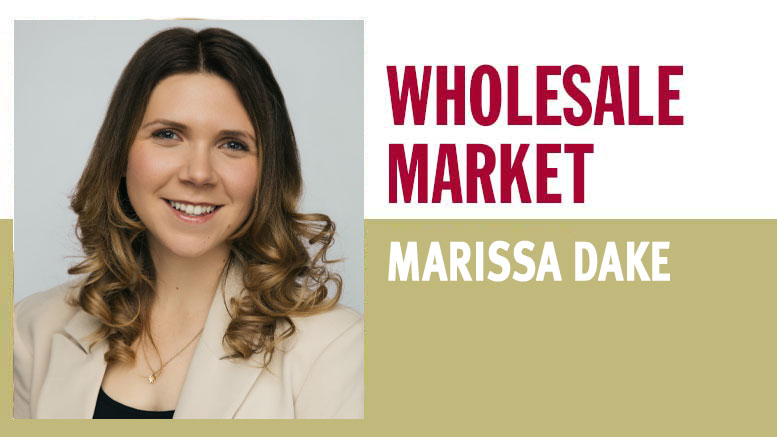Every Wholesaler Needs a Relationship With a Food Recovery Organization
September 6, 2024 | 4 min to read
At DNO Produce, the reality of the produce industry is that managing supplier challenges and spoilage is an art more than a science, resulting in considerable food waste. Partnering with food recovery organizations like Food Rescue Columbus-Local Matters, Mid-Ohio Food Collective, and implementing a structured food waste recovery plan have led to a significant decrease in produce dumps. These partnerships not only benefit the community but also provide economic advantages and enhance operational efficiency.

“Produce is an art, not a science.” These words resonated with me during my first week at DNO Produce, as I toured our bustling warehouse. I quickly learned how true that is when managing procurement, inventory and sales in the produce industry.
Our teams grapple with rapidly turning products, rejected shipments and unpredictable customer demand. According to the U.S. Department of Agriculture, approximately 30-40% of the food supply is wasted in the United States. Despite our best efforts, spoilage is inevitable.
Food recovery organizations play a crucial role in bridging this gap. These organizations tirelessly collect, store and distribute food that would otherwise go to waste. At DNO Produce, we partner with Food Rescue Columbus-Local Matters and the Mid-Ohio Food Collective (MOFC) to ensure non-sellable products reach those who need them.
Imagine a world where every produce wholesaler established a food recovery relationship and diverted even 10% of its annual surplus into their communities.
I’ve been surprised by how many of our peers lack a food waste plan or recovery partnership. Every time a pallet of tomatoes or berries is dumped, it’s a loss for our business, the environment and our community.
For produce that cannot be sold, we have achieved a 12.76% decrease in produce dumps compared to this time last year. At the same time, our produce donations have jumped 44.4%.
Here’s why every wholesaler should consider establishing similar relationships:
BENEFITS TO WHOLESALERS
- Economic Benefits: Partnering with food recovery organizations isn’t just good for the community, it’s also good for business. Donated goods are eligible for tax deductions, with the Enhanced Federal Tax Deduction allowing businesses to deduct the cost of the donated food plus half the difference between the cost and the fair market value. Redirecting fresh produce to food recovery organizations also significantly reduces disposal fees.
- Operational Efficiency: Managing surplus inventory can be a logistical nightmare, but having a structured process for food recovery simplifies this task. It streamlines operations by providing a clear path for excess produce, reducing the burden on our storage facilities, and ensuring our inventory remains tight.
- Boosting Demand and Engaging Customers: By redirecting surplus produce to communities in need, we prevent waste and provide much-needed fresh fruits and vegetables to areas that often lack access. This can improve the health and well-being of these communities while planting seeds for a new segment of customers. Instead of competing for the existing consumer base’s dollars, we can leverage something we already have to cultivate a new group of produce enthusiasts.
Furthermore, in today’s market, consumers are increasingly concerned with the ethical practices of the companies they support. Your food recovery efforts can become a vital part of your marketing strategy, highlighting your commitment to social responsibility and engaging your customers who value sustainability and community impact.
ESTABLISH A RELATIONSHIP
Establishing a relationship with a food recovery organization is a straightforward process that can yield tremendous benefits. Here are practical steps to get started:
- Identify Local Organizations: Research and identify food recovery organizations in your area. Look for those that align with your values and operational capabilities.
- Establish a Connection: Reach out to these organizations to discuss how your surplus produce can fit into their distribution network. Be prepared to explain your capacity for regular donations and the types of produce you can offer.
- Iron Out the Details: Work with the food recovery organization to establish a regular donation schedule. Train your warehousing team to handle the donation process efficiently. Incorporate the necessary steps into your ERP system to flag surplus produce in real time or schedule pick-ups and deliveries.
- Maintain Communication: Successful partnerships are built on clear communication and mutual goals. Check in with your partners to ensure the process is working smoothly.
GET STARTED
Forming a relationship with a food recovery organization is a win-win-win for produce wholesalers, the environment, and the community. It addresses food waste, supports community and environmental health, and provides business benefits.
Imagine a world where every produce wholesaler established a food recovery relationship and diverted even 10% of their annual surplus into their communities. The environmental impact would be profound. Communities would thrive with increased access to fresh, nutritious food. Wholesalers and the produce industry would be celebrated as champions for our leadership and care.
I urge wholesalers to take that first step. Let’s lead the way in transforming our companies, communities and industry for the better.

Marissa Dake is a passionate advocate for nutrition equity, food education, and access to fresh produce. In her role as vice president of brand and partnerships at DNO Produce, she manages the company’s brand alignment, public affairs and community outreach initiatives.
15 of 30 article in Produce Business September 2024

